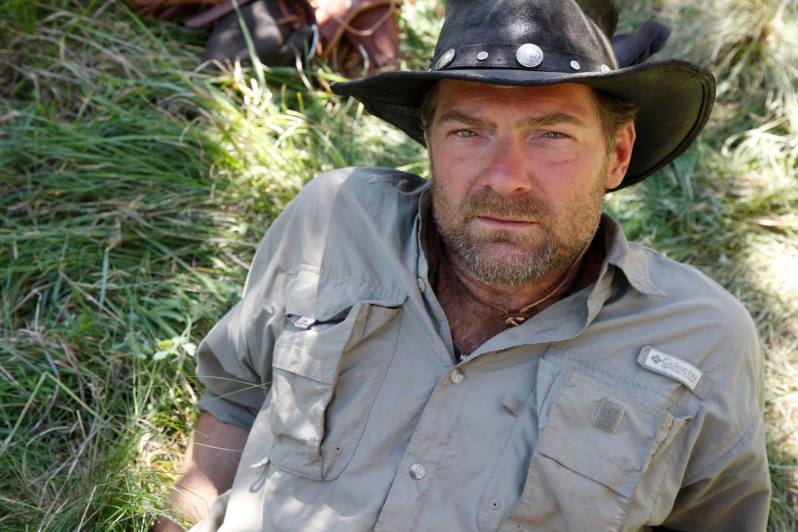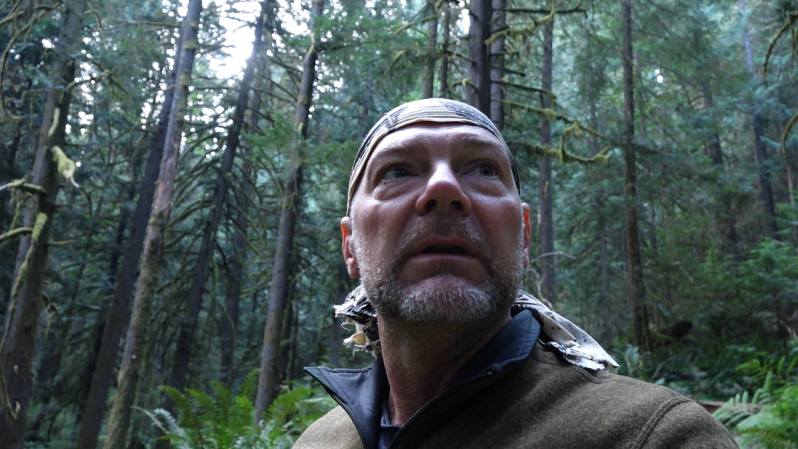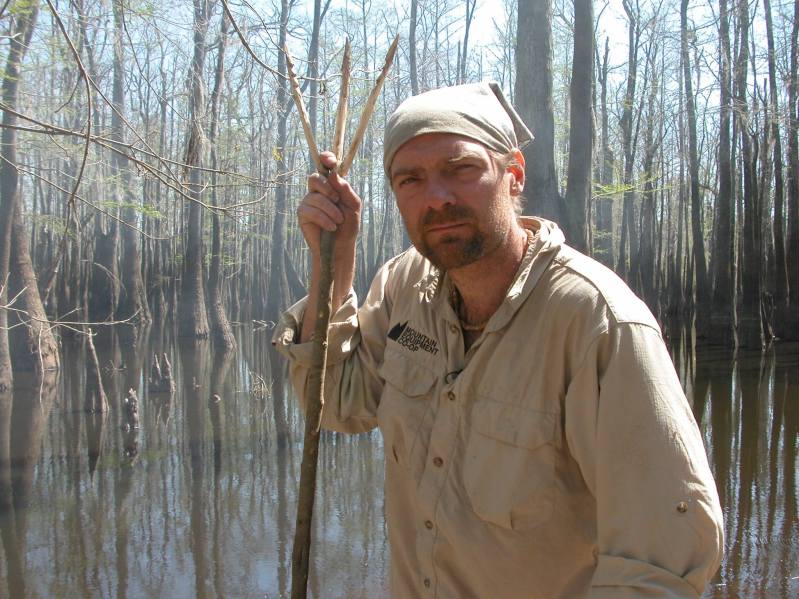
Even if the name Les Stroud isn’t immediately familiar to you, the name by which Stroud is known to millions likely is: Survivorman. That’s the name of the 2005 show Stroud starred in as well as single-handedly filmed as he put himself through multi-day solo survival “ordeals” in the name of wilderness education. In filming Survivorman, which saw Stroud surviving alone in locales as varied as the deep forests of his native Ontario to the Australian Outback to the jungles of Papua New Guinea to frigid Scandinavian mountains, Stroud taught his audience a range of survival techniques including fire-making, shelter-building, foraging, and water collection and purification. In essence, he inspired a generation of men to get outside of their comfort zones, both figuratively and literally.
Related Guides
The show ran for multiple seasons and saw myriad spin-offs and specials, propelling the now 59-year-old outdoorsman into a globally recognized figure. In the process, he pioneered an entirely new genre: survival TV. He paved the way for guys like Bear Grylls and cult-favorite shows like Naked and Afraid, Man vs. Wild, and Dual Survival.
Stroud knows the impact of his work, which includes television shows, YouTube clips, and a number of outdoor books, including the forthcoming children’s book Wild Outside: Around the World with Survivorman
Where do you see your work in the survival genre falling between the categories of education, information, and entertainment?
Les Stroud: Absolutely informing and educating. To give an anecdotal reference, way back in the very beginning, before any other [survival] shows came up, one of the reasons why the networks were always upset with me is they’d say “OK, well we need to insert some drama now,” and I used to say: “So one man alone in the middle of the Amazon jungle without food or water and with very little equipment, filming himself for a week, isn’t dramatic enough?” For me, the entertainment and the drama is intrinsic within the scope of what I was filming with a purpose to educate.

TM: When you first went out to film your first survival ordeal, did you think there might be some legs to the project, that someday you might have made all these shows and written these books and all, or was it more, “Let’s just see what happens?”
LS: Totally option B there. It was what I loved to do, sure, but did I see it going like this at all? To helping create an industry worth hundreds of millions of dollars and my own career? No I didn’t see that all. I just wanted to get out of poverty. I wanted to make films about my adventures and to share what I loved, and I believed the films were captivating and interesting and all, but you have to understand too that even when I was launching the show, I was met with a crescendo of opposition … But then when I took it to other people, to Outdoor Life Network, and they said: “Yes, we want this.”
TM: What are some of the mistakes the amateur outdoorsman should watch out for? And mistakes even experienced outdoorsmen should avoid?
LS: You don’t just go. You do research. Then research more. That’s where people can go so wrong, they think they can just go do some big adventure without doing any research, and maybe they have just seen a few TV shows, seen Survivorman, and think they can just go without researching, without preparing the proper kit. And by kit I mean clothing, too. Some people think research is geeky, but it’s not, it’s the way to be safe. And you’ll be the hero once you’re there because they’ve got it down.
TM: What are some ways people can live out their own outdoor adventure, factoring in budget, time, and even COVID safety for now?
LS: It really does start at home. It starts in the back yard, at a local park. Before I was Survivorman, and I was working in the city, in Toronto, my only form of adventure was walking the dogs down at a creek behind the hospital there, where there were deer and blue heron and geese. Adventure doesn’t have to be the big expensive thing. Even if you live in New York City, go to Central Park – there are lots of animals and plants and such and you can explore those wild spaces even in cities, which is why I’m a huge proponent of parks.
TM: What was the motivation for this book Wild Outside that’s aimed at young adventurers?
LS: So the wonderful irony of my series over all these years is that even though it was produced with adults in mind, kids love it. I mean I have seen just dozens of photographs of kids dressing up as me for Halloween, and if that isn’t a moment of endorsement, I don’t know what is. Also, as an outdoor educator, I taught kids for years. So it was really a natural progression, and it was just a great chance to purposely direct all that I do towards younger people, instead of them just kind of getting it vicariously by watching with their parents.

TM: Beyond watching your shows, what are the best resources for people who really want to hone their wilderness and survival skills?
LS: Well, notwithstanding the pandemic, every dedicated outdoor store is filled with adventure geeks. You go to an REI, there are going to be people there, who work there, and there will be people there who love the outdoors. That’s why they’re there. There are hikers, skiers, canoeists, they are those things, and they are a hugely untapped resource that people really can use.
You go into one … maybe say “Hey, I’m going to go hike The Sisters there in Oregon,” and you’ll find some guy working there who’s like: “Oh, my wife and I just did that three days ago!” … and before you know it, you’re like “OK dammit that’s so much cooler than what I was going to do.” So go to those places and get advice. And if you’re really brand new to this stuff, look at the bulletin board there. The boards in those places always have notes like “Six Person Hike on Inca Trail Peru — Needs Two People” or offering guides and all, and more so than ever, those centers where we buy our gear, I think honestly those are resources.
TM: If you had never gotten into survival, what do you think you would done for a career?
LS: I mean, that’s a pretty deep, existential question for me, because creating Survivorman pulled me out of poverty. I mean I was playing music in pubs on the weekends to make 300 bucks to put my kids in diapers. Where would I have gone? I don’t know, I really don’t know how to answer that question.
Fortunately, Stroud doesn’t need to know how to answer it, because surviving on camera worked wonders. Instead he can turn to what’s next, like his new show Wild Harvest on public TV stations right now, as well as the special Surviving Disasters with Les Stroud that will be out later this year.



